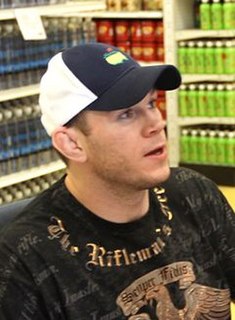A Quote by David Edward
We came to recognize that our initial thinking about the keys to educational reform was wrong. The key variables weren't pedagogical. They weren't financial. They weren't curricular. They weren't research. They weren't any of the usual things we've always talked about as the engines of change. The variables were deeply emotional and cultural.
Related Quotes
One of the most consistent findings about low performing schools and students is that "home variables" (parental income and education, etc.) are more predictive than "school variables." But, having said that, we as a society can have much more effect on the school variables than on the home variables, so it's important and valuable to focus on the question of which interventions in schools are most effective and which are least effective.
We're constantly dealing with old problems under the circumstance of new variables, so just things like greed and fear and anger and inequality are issues that humanity has constantly dealt with. The parameters and the variables change but these are old things. And discussing those things is slightly more timeless rather than focusing on one tiny thing.
Rather, the master question from which the mission of education research is derived: What should be taught to whom, and with what pedagogical object in mind? That master question is threefold: what, to whom, and how? Education research, under such a dispensation, becomes an adjunct of educational planning and design. It becomes design research in the sense that it explores possible ways in which educational objectives can be formulated and carried out in the light of cultural objectives and values in the broad.
The variables of quantification, 'something,' 'nothing,' 'everything,' range over our whole ontology, whatever it may be; and we are convicted of a particular ontological presupposition if, and only if, the alleged presuppositum has to be reckoned among the entities over which our variables range in order to render one of our affirmations true.
Science manipulates things and gives up living in them. It makes its own limited models of things; operating upon these indices or variables to effect whatever transformations are permitted by their definition, it comes face to face with the real world only at rare intervals. Science is and always will be that admirably active, ingenious, and bold way of thinking whose fundamental bias is to treat everything as though it were an object-in-general - as though it meant nothing to us and yet was predestined for our own use.


































